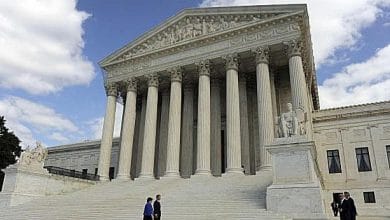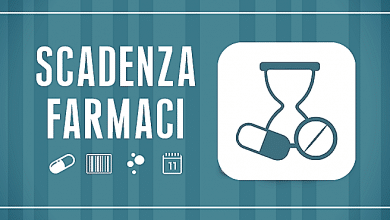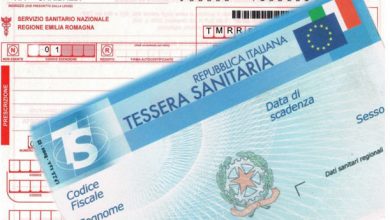
True freedom is conquered with information and awareness and finds invincible enemies in pain and desperation and for this reason, alongside choice, a scientific and medical culture is needed that is accessible to the entire population starting from those who decide and rules. The ignorant are not free. Someone confuses the right to freedom of treatment with a sort of market: the smartest seller convinces by screaming. Health is not a commodity, but it is a right and the patient is not a client to be convinced.
Of Except DiGrace | 25 July 2014 | The Science Fact
There freedom of care it is a foundation of a civil society. Freedom of how to treat one's health means that each individual must be free to accept or refuse a proposed treatment for his disease and can do the same even when it comes to "end of life" care, everyone should be free even to refuse any therapy following the natural course of the evil that afflicts him, it is a right enshrined in the Constitution: each of us is the sole master of his own body. Freedom of care means being able to decide about ourselves, always, even on the day when we could not communicate it due to serious health conditions, being able to ask to avoidtherapeutic persistenceIn short, it means deciding what to do with our cells.
However, true freedom is conquered with information and awareness and finds unbeatable enemies in pain and desperation and for this reason, alongside choice, there is a need for a scientific and medical culture that is accessible to the entire population starting from who decides and governs, if this culture does not exist we must rely on who does it have it or do you end up a victim of scams and quackery. The ignorant are not free, they will forever be dominated and will risk choosing wrongly in the name of an erroneous belief, an ideology or incorrect information, often provided for less noble interests.
Someone confuses the right to freedom of treatment with a sort of market: the smartest seller convinces by shouting that his goods are the best and the naive customer takes the bait and buys, health is not a commodity, but a right and the patient not a customer to be convinced but an individual to whom to ensure the best performance. Civil society has another indisputable right, that of guaranteeing everyone the Right to health. The contribution of all citizens pays for the costs of treatment for the individual and this is a sign of great social support. Naturally it is not possible for all of society to support the personal choices of the individual, otherwise we would have to bear the costs of those who want to be treated with trips to Lourdes, with shamanic rituals or with magical herbal teas and those who argue that buying diamonds is a weapon very powerful against depression, it would require everyone's contribution to purchase its "rich" medicine. That's why it's important define what a cure is. A golden bath is it? A magic potion? Is a propitiatory rite something that society must take charge of? No, cure is all that has proven to be, in the best possible way, that today is the scientific method.
The choice is therefore quite logical: society only supports treatments that have been scientifically proven to work. Anyone who by his choice or conviction (if of age and capable of understanding) wants to undergo treatments that have not demonstrated any benefit He can do it, it is his right, but at his expense. I think there is nothing "striking" in a rule like this, it is so clear and common sense. This concept often clashes with what certain sentences decide that we have also recently heard of, as in the case of Stamina or of the “care of Bella” or for other ineffective treatments: a person decides to follow the unscientific treatment, but a judge imposes the reimbursement for the purchase of those drugs or the obligation of its administration.
This type of controversy often arises from the lack of correct information and from the judicial point of view also from the fact that a judge, not being a man of science, bases his decisions on appraisals, often biased, sometimes superficial, sometimes pushed by public opinion. Desperation for a serious illness (personal or of a loved one) makes vulnerable and enhances any hope, even the most feeble or incredible. Many people, faced with a serious diagnosis, look around for anyone who can provide footholds or possibilities for salvation. They will find dozens of "healers" or "cures" that promise incredible results, healings unexpected, all, who knows why, never proved effective. These "healers" advertise themselves in the most popular places on the net, live on notoriety and none of them give away the cure, you can bet on it, none of them live in contact with patients in hospital, none has ever experienced the real effectiveness of the alleged therapy and yet the they sell as a proven, almost miraculous solution. They make up for the lack of effectiveness of the pseudo-cure by spending rivers of words on the limits of the medicine, on "competition": if you can't prove you're better, try to prove that your competitor is worse, it's an old rule of (unfair) trade.
So there are thousands of desperate people who spend thousands of euros in useless drugs and potions, spend their time in exhausting therapeutic ceremonies, go abroad or turn to people and structures that are real traps complete with advertising staff and press for a refund or to carry out the treatment in public facilities in the name of a non-existent "right to waste everyone's money", something that has already happened (Stamina case or government flights for useless "treatment abroad"). There is a clear interest on the part of these scammers in confusing two concepts: that of "freedom of treatment" and that of "right to treatment". We all have the right to be treated, but the community can only help those who want to be treated in the best possible way. Anyone who chooses other ways and therefore makes a permitted but personal choice cannot ask his community to support him in his choice, humanly perhaps yes, but economically no, because this would not mean helping those who are ill but being an accomplice of those who cheat, who are not interested in science, never in any case, as much as they are interested in money and citizens should understand this, rulers and judges.
TO





